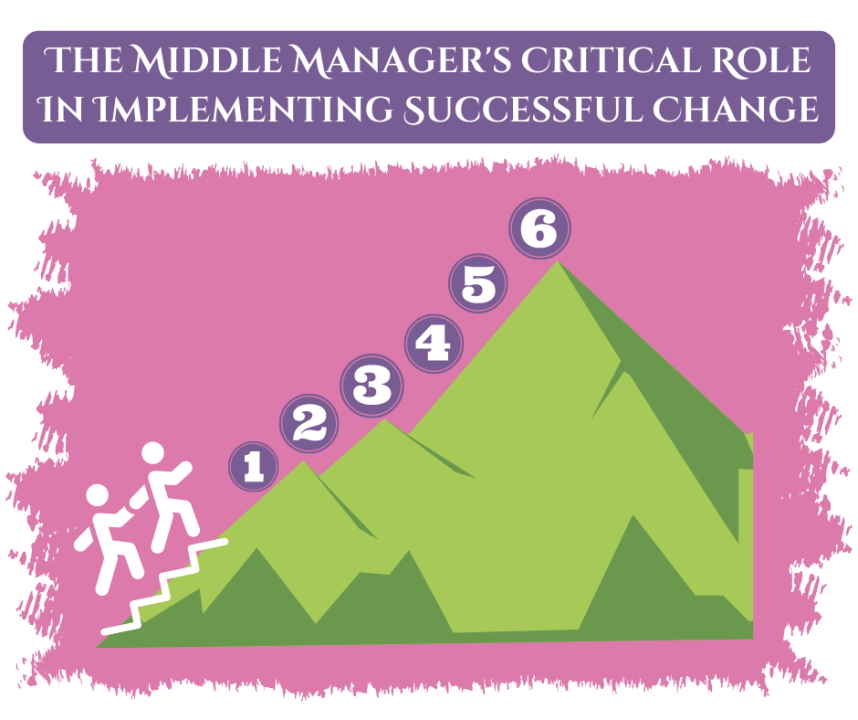Why Middle Managers Are Essential For Company Success And Employee Growth

Table of Contents
Middle managers are the vital link between executive leadership and frontline employees. They're not just supervisors; they are strategic interpreters, communicators, and mentors who directly influence the daily operations and the future trajectory of an organization. Their effectiveness is directly tied to employee growth, team performance, and the overall success of the company.
Bridging the Gap Between Executive Leadership and Frontline Employees
Middle managers act as a crucial bridge, translating high-level strategic goals into actionable tasks for frontline employees. They provide the necessary context, ensuring that everyone understands how their individual contributions align with the broader company vision. This vital role involves robust communication, flowing both upwards and downwards within the organizational structure.
- Effective communication of company vision and strategy: Middle managers break down complex strategic plans into smaller, manageable goals, ensuring clarity and understanding at all levels.
- Relaying employee feedback and concerns to upper management: They act as a voice for their teams, ensuring that employee concerns and suggestions reach the decision-makers.
- Translating complex directives into clear and concise instructions: They simplify complex instructions, removing ambiguity and ensuring that employees can effectively perform their tasks.
- Managing expectations and setting realistic goals: They set achievable goals and manage expectations, preventing burnout and fostering a positive work environment. This is critical for leadership development within the team.
Fostering Employee Growth and Development
Effective middle managers are not just taskmasters; they are also mentors and coaches, playing a crucial role in employee development. They identify talent, provide guidance, and create opportunities for professional growth within their teams. This investment in human capital directly translates to improved company performance.
- Providing regular performance reviews and constructive feedback: Regular feedback sessions allow for continuous improvement and support individual career development.
- Identifying training needs and development opportunities: Middle managers recognize skill gaps and advocate for training opportunities to enhance employee capabilities.
- Mentoring and coaching team members for career progression: Mentorship provides valuable guidance and support, assisting employees in achieving their career aspirations.
- Creating a supportive and inclusive work environment: A positive and inclusive environment fosters employee engagement and enhances overall productivity. This directly supports leadership development within the team.
Driving Team Performance and Productivity
Middle managers are directly responsible for driving team performance and productivity. Their ability to motivate, delegate effectively, and manage resources is essential for achieving organizational goals. Effective delegation and task management are key to ensuring that work is completed efficiently and effectively.
- Setting clear expectations and performance standards: Clearly defined expectations leave no room for ambiguity and ensure everyone is working towards common objectives.
- Delegating tasks effectively and empowering team members: Empowering team members increases their ownership and fosters a sense of responsibility.
- Monitoring progress and providing support: Regular monitoring allows for early identification of potential issues and timely intervention.
- Addressing conflicts and resolving issues promptly: Swift conflict resolution prevents escalation and maintains a productive work environment.
- Celebrating successes and recognizing achievements: Recognizing achievements boosts morale and motivates team members to continue performing at a high level. This directly impacts employee growth.
Improving Company Culture and Employee Retention
Strong middle management significantly impacts overall company culture. The positive relationships fostered by effective middle managers improve employee satisfaction and directly contribute to higher retention rates. A positive work environment contributes to employee loyalty and reduces turnover costs.
- Creating a positive and supportive work environment: A positive environment boosts morale and improves employee productivity.
- Promoting teamwork and collaboration: Fostering collaboration increases efficiency and improves the overall quality of work.
- Addressing employee concerns and resolving conflicts fairly: Fair conflict resolution ensures a just and equitable work environment.
- Recognizing and rewarding employee contributions: Recognition and rewards boost morale and motivate employees.
- Encouraging open communication and feedback: Open communication ensures transparency and strengthens relationships between employees and management. This is crucial for leadership development programs.
The Indispensable Role of Middle Managers
In conclusion, middle managers are not merely supervisors; they are the linchpin of a successful organization. Their impact on employee growth, team performance, and company culture is undeniable. Effective middle management leads to improved employee morale, increased productivity, and higher retention rates. Investing in strong middle management is investing in the future success of your company. Prioritize effective leadership development programs and empower your middle managers to drive employee growth and achieve lasting company success. Consider investing in middle management training and leadership development programs to cultivate the next generation of leaders within your organization.

Featured Posts
-
 The Zuckerberg Trump Dynamic Implications For Technology And Politics
May 02, 2025
The Zuckerberg Trump Dynamic Implications For Technology And Politics
May 02, 2025 -
 Tv Dallas Star Dies Another 80s Soap Legend Lost
May 02, 2025
Tv Dallas Star Dies Another 80s Soap Legend Lost
May 02, 2025 -
 The Roberts Court And Religious Freedom Examining The Blurring Of Church And State Lines
May 02, 2025
The Roberts Court And Religious Freedom Examining The Blurring Of Church And State Lines
May 02, 2025 -
 Scotland In The Six Nations 2025 Overachievers Or Underperformers
May 02, 2025
Scotland In The Six Nations 2025 Overachievers Or Underperformers
May 02, 2025 -
 Knapriga Kycklingnuggets Med Majs And Asiatisk Inspirerad Kalsallad
May 02, 2025
Knapriga Kycklingnuggets Med Majs And Asiatisk Inspirerad Kalsallad
May 02, 2025
Latest Posts
-
 Snls Harry Styles Impression The Singers Reaction
May 10, 2025
Snls Harry Styles Impression The Singers Reaction
May 10, 2025 -
 Harry Styles Response To A Bad Snl Impression Disappointed
May 10, 2025
Harry Styles Response To A Bad Snl Impression Disappointed
May 10, 2025 -
 The Snl Harry Styles Impression A Disappointing Reaction
May 10, 2025
The Snl Harry Styles Impression A Disappointing Reaction
May 10, 2025 -
 Snls Failed Harry Styles Impression His Response
May 10, 2025
Snls Failed Harry Styles Impression His Response
May 10, 2025 -
 Harry Styles On That Awful Snl Impression His Response
May 10, 2025
Harry Styles On That Awful Snl Impression His Response
May 10, 2025
